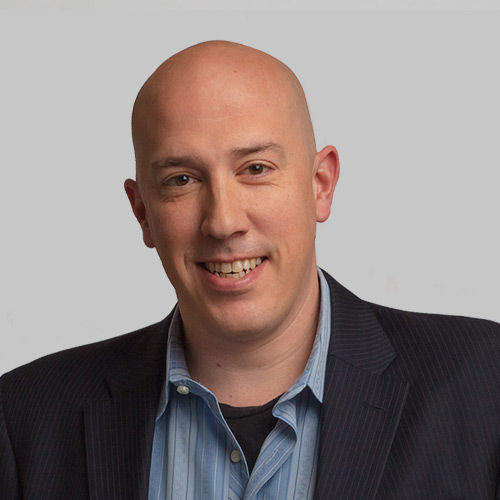SVP Paul Longhenry shares his keys to a successful career in BizDev
- Matthew Himelstein || @Himelandstein
- Nov 20, 2017
- 4 min read
The Follow-Up Blog highlights industry trends, insights and keys to success from today’s top sales leaders and executives. Today we caught up with Paul Longhenry, SVP of Strategy and Business Development at Tapjoy, an engagement and monetization platform for advertisers and app developers.
Paul Longhenry’s career spans an operator-investor-operator story arc. He started his career as an entrepreneur for Sonim Technologies, where he helped deliver a leading VoIP solution for its time, then did stints at venture capital firms 3i and D.E. Shaw before joining Tapjoy in early 2011. I caught up with Paul via email this past week to learn more about his experience and approach to strategy and business development (BD).
MH: What’s the “elevator pitch” for your company? What is your role and how are you impacting the business at a high level? Why did you choose to do this?

PL: I lead strategy and business development for Tapjoy, a mobile app monetization and performance advertising platform. I’m responsible for driving our mid-to-long-term product & market strategy amid all the complexity in the adTech and marTech ecosystems. It’s a fun and challenging role, as market dynamics shift very frequently and we’re always working to build lasting differentiation relative to the giants of tech.
Of your past professional experiences, which has been the most important in preparing you for what you are doing today? Why?
I’m definitely leveraging a combination of past experiences in my current role. My first start-up (Sonim Technologies) gave me the confidence to really drive a product vision despite my lack of an engineering background. My venture capital experiences (3i and D.E. Shaw) trained me to always maintain a focus on driving enterprise value… even when setting relatively minor operational priorities. A compelling product vision and a big picture strategic mentality are what I try to contribute to our team every day.
Can you tell me about a time or event in your life where you had to deal with adversity? Where things didn’t go as planned? How did you overcome these obstacles? Did this learning help you out in your professional career?
My second venture capital experience with D.E. Shaw Ventures was severely impacted by the financial crisis in 2008 / 2009, as our sole limited partner effectively told us that they had $0 to invest in new deals due to liquidity challenges. It’s challenging to be a venture capitalist absent the capital part… What I learned well was to focus on what is within my control and to avoid dwelling on circumstances that I couldn’t truly impact. I try to remind myself of this every week…where can we make a positive impact on the market without reliance on things outside our control (don’t expect to get lucky!).
What is your team currently using for your sales stack? A major CRM platform? Anything else? What have you found good & bad about each?
Tapjoy is a Salesforce shop…much of our teams’ workflow is embedded in that platform. I’m sure our team would say that it was really painful at first, but has proven to be worth the effort.
How has the sales and business development software changed since you started your career? Is it getting better? What do you think the future of sales software is?
Early in my career we just used the MSFT productivity suite…this was best-in-class and there wasn’t much competition. The emergence of marTech and marketing clouds should be a game-changer for virtually every sales and BD organization, as it captures and activates institutional knowledge in a manner not possible otherwise. I expect the market will continue to evolve towards predictive marTech services built on a vertical-by-vertical basis.
What do you wish you had learned before you were 30 that you didn’t, and had to learn later? What advice do you have for your younger self or for those who are thinking about making a career change or going to start their own company?
I didn’t join my first start-up until my early 30s and I wish I would have done it earlier. It’s obviously an incredibly challenging path to pursue, with highs and lows that are no doubt unhealthy for many, but it’s also truly empowering and rewarding (even when things aren’t going all that well). I’d have told my younger self to find entrepreneurs that have multiple rounds of success and find my way into their businesses regardless of roll, as the learning opportunity would be invaluable and great teams are typically meritocracies in which one can quickly take on greater responsibility on the back of great work. I provide this same advice to Valley newbies all the time.
Anything else you’d like to share with The Follow-Up Blog community? This could be what’s coming up for your company or you personally, or it could be your thoughts about how college/grad school or your first job impacted your journey to success!
A few points of advice I’ve found to be good drivers of success:
(1) surround yourself with people that are even better than you;
(2) coach your team to the point that they can do your job better than you can;
(3) if something seems wrong with your company’s product / strategy / etc., don’t wait…say something; and
(4) when you highlight that something is wrong, always include a few suggestions on how things can be improved.
Taken together, these traits are the most common characteristics I’ve seen in both entrepreneurialism and great leadership.
Thanks so much for the opportunity to understand what your success looks like Paul! If you’re interested in the leading platform for app engagement and monetization, make sure to check out TapJoy. And if you found this interview on The Follow-Up Blog helpful, please applaud and share with your colleagues!

Comments